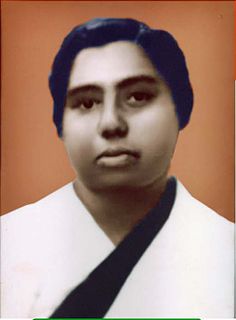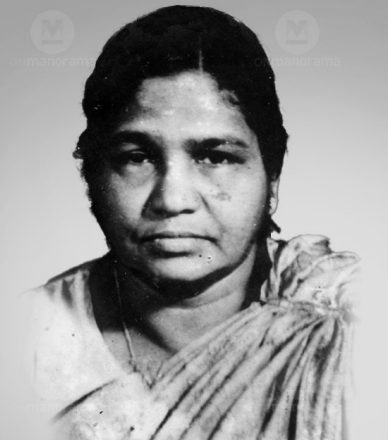
The Kingdom of Travancore, also known as the Kingdom of Thiruvithamkoor, was an Indian kingdom from c. 1729 until 1949. It was ruled by the Travancore Royal Family from Padmanabhapuram, and later Thiruvananthapuram. At its zenith, the kingdom covered most of modern-day Southern parts of Kerala, and the southernmost part of modern-day Tamil Nadu with the Thachudaya Kaimal's enclave of Irinjalakuda Koodalmanikyam temple in the neighbouring Kingdom of Cochin. However Tangasseri area of Kollam city and Anchuthengu near Attingal in Thiruvananthapuram district, those were British colonies, were parts of Malabar District until 30 June 1927, and Tirunelveli district from 1 July 1927 onwards. Travancore merged with erstwhile princely state of Cochin to form Travancore-Cochin in 1950. The five Tamil-majority Taluks of Vilavancode, Kalkulam, Thovalai, Agastheeswaram, and Sengottai were transferred from Travancore-Cochin to Madras State in 1956. The Malayalam-speaking regions of the Travancore-Cochin merged with the Malabar District and the Kasaragod Taluk of South Canara district in Madras State to form the modern Malayalam-state of Kerala on 1 November 1956, according to the States Reorganisation Act, 1956 passed by the Government of India.

Sree Padmanabhadasa Sree Chithira Thirunal Balarama Varma, popularly known as Sree Chithira Thirunal, was the last ruling Maharaja of the Princely State of Travancore, in southern India until 1949 and later the Titular Maharajah of Travancore until 1991. Sree Chithira Thirunal was the eldest son of Junior Maharani of Travancore, H.H. Sree Padmanabhasevini Vanchidharmavardhini Rajarajeshwari Maharani Moolam Thirunal Sethu Parvathi Bayi, and Sri Pooram Nal Ravi Varma Koyi Thampuran of the Royal House of Kilimanoor. He was privately educated, and became the Maharajah of Travancore, at the age of 12, upon the death of his maternal great uncle, the then Maharajah of Travancore Sree Moolam Thirunal, on 7 August 1924. He reigned under the regency of his maternal aunt, Sethu Lakshmi Bayi (1924–31), until he came of age and was invested with full ruling powers on 6 November 1931.

Travancore–Cochin, or Thiru–Kochi, was a short-lived state of India (1949–1956). It was originally called United State of Travancore and Cochin following the merger of two former kingdoms, Travancore and Cochin on 1 July 1949. Its original capital was Thiruvananthapuram. It was renamed State of Travancore–Cochin in January 1950. Travancore merged with erstwhile princely state of Cochin to form Travancore-Cochin in 1950. The five Tamil-majority Taluks of Vilavancode, Kalkulam, Thovalai, Agastheeswaram, and Sengottai were transferred from Travancore-Cochin to Madras State in 1956. The Malayalam-speaking regions of the Travancore-Cochin merged with the Malabar District and the Kasaragod Taluk of South Canara district in Madras State to form the modern Malayalam-state of Kerala on 1 November 1956, according to the States Reorganisation Act, 1956 passed by the Government of India.

The Praja Socialist Party, abbreviated as PSP, was an Indian political party. It was founded when the Socialist Party, led by Jayaprakash Narayan,Rambriksh Benipuri, Acharya Narendra Deva and Basawon Singh (Sinha), merged with the Kisan Mazdoor Praja Party led by J. B. Kripalani.

Raja Shri Pattom A. Thanu Pillai was a participant in the Indian independence movement who later served as the Chief Minister of Kerala from 22 February 1960 to 25 September 1962. He was known as the 'Bhishmacharya' of Kerala politics.

C. Kesavan was a politician, social reformer, statesman and the Chief Minister of Travancore-Cochin during 1950–1952.

T. M. Varghese (1886–1961) was an India freedom fighter, lawyer, statesman, former minister and politician from Kerala.

Accamma Cherian was an Indian independence activist from the erstwhile Travancore (Kerala), India. She was popularly known as the Jhansi Rani of Travancore.
Paramarthalinga Thanulinga Nadar, also known simply as Thanulingam, was an Indian politician, Tamil Nadu Ellai Poratta Thyagi, and a staunch member of the now defunct Travancore Tamil Nadu Congress and would later emerge as a right-wing activist in the State. He served as a Member of Parliament with the Indian National Congress. In his later life, he served as the State President of the Hindu Munnani and played an active role in furthering Hindutva in the Indian State of Tamil Nadu in the 1980s.
C. Mathai Stephen was an Indian politician and Union Minister in the Republic of India. C. M. Stephen was born on 23 December 1918 to Eapen Mathai and Esther of Chembakassery house in Cherukole, Mavelikkara. During his school days, Stephen was active in the Balajanasakhyam. This helped him to develop leadership qualities, oratorial and organizing skills.

Kerala Pradesh Congress Committee is the state unit of the Indian National Congress, working in the state of Kerala. Its head office is situated at Thiruvananthapuram. It first met in 1921 at Ottapalam, the banks of the River Bharathappuzha. K Sudhakaran is the current president of KPCC. V.D. Satheesan is the current parliamentary party leader.
Pulloli Thomas Chacko was an Indian politician of Travancore and later Kerala. He was the first Leader of Opposition of the newly formed state of Kerala. He was also the Home Minister of Kerala holding the additional portfolios of Revenue and Law during the period 1960–64.
The Sree Moolam Popular Assembly in the erstwhile state of Travancore was the first popularly elected legislature in the history of India.

Annie Mascarene was an Indian independence activist, politician and lawyer from Thiruvananthapuram, Kerala who served as a Member of the Parliament of India and was the first woman to do so.
The present-day Kanyakumari district and parts of tenkasi district of Tamil Nadu state in India was originally a part of the Travancore-Cochin state. Between 1945 and 1956, especially after the Government of India announced plans to reorganize states along linguistic lines, the people of Tamil-majority Kanyakumari campaigned for its inclusion in the Madras State instead of the Malayalam-majority Kerala state. In Tamil, the campaign is also known as Therkku Ellai Porattam.
The Pattom A. Thanu Pillai ministry was a Kerala government ministry formed on 22 February 1960 and lasted till 26 September 1962.

K. Kumar (1894–1973) was an Indian orator, reformer and writer of the Indian pre-independence era. He was one of the earliest socio-political leaders to have brought Gandhi's message and the spirit of the national movement to the erstwhile Travancore State. A gifted translator, he traveled with Gandhi during his Kerala tours, interpreting his English speeches in Malayalam. He was also an Advisor to the Nehru government. Kumarji was the President of the Travancore Congress Committee and was also in charge of Gandhiji's Travancore tour more than once. He served on the AICC and on the working committee of the AICC, TC-PCC/ KPCC heading its Constructive Work Committee during crucial years of the freedom movement.(Also known as: Travancore Kumar, Elanthur Kumarji; Kumarji, Elanthur Gandhi and Kuzhikala Kumar)

Changanassery Parameswaran Pillai popularly Changanassery, was a social reformer, lawyer, judge, attorney general and the former president of the Nair Service Society. He was elected four times to the Sree Moolam Popular Assembly.

K. T Achuthan was an Indian politician from Kerala and a leader in the Indian National Congress. He served as Minister for Transport & Labour in both R. Sankar ministry and Pattom Thanu Pillai ministry.
Kumbalathu Sanku Pillai (1898-1969) was a social reformer, politician and freedom fighter from Kollam in erstwhile Travancore. He worked for upliftment of lower Caste, spreading modern education and democratization of Travancore. He was the president of Kerala Pradesh Congress Committee from 1949-1951 and one of the leaders of Vimochana Samaram. He was also the founder and first president of Panmana Ashramam made in commemoration of Chattampi Swamikal.












